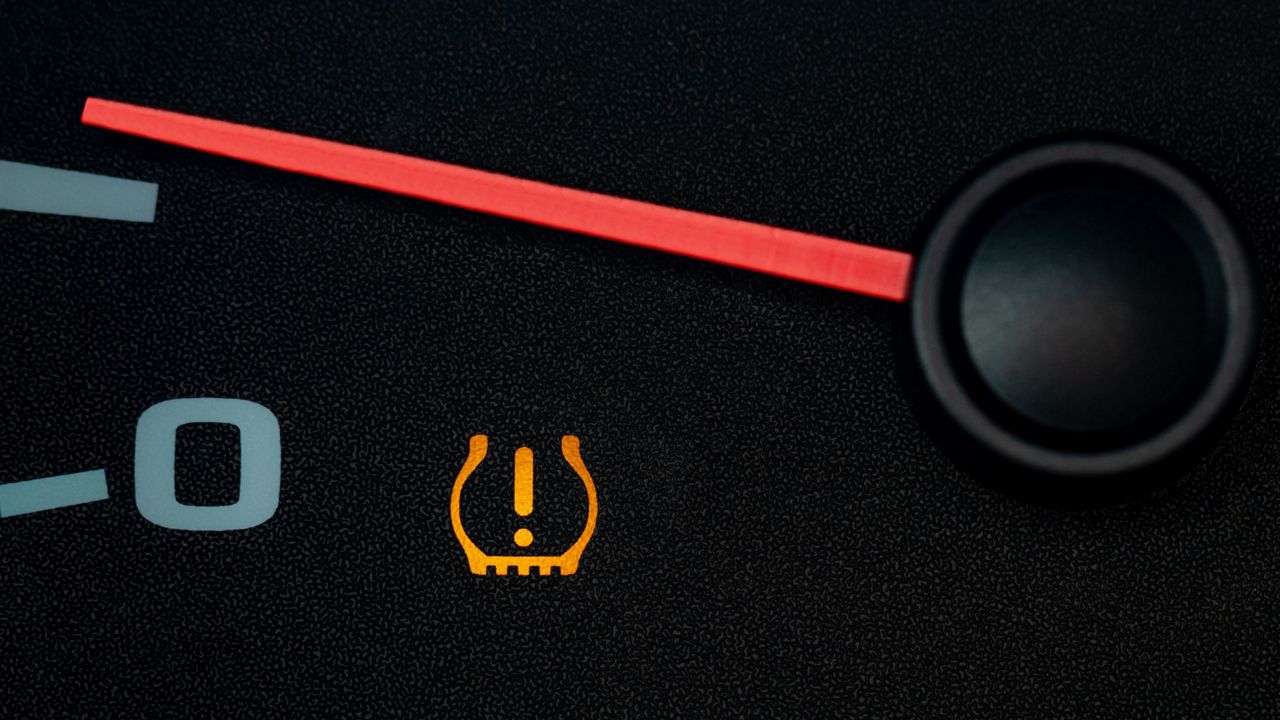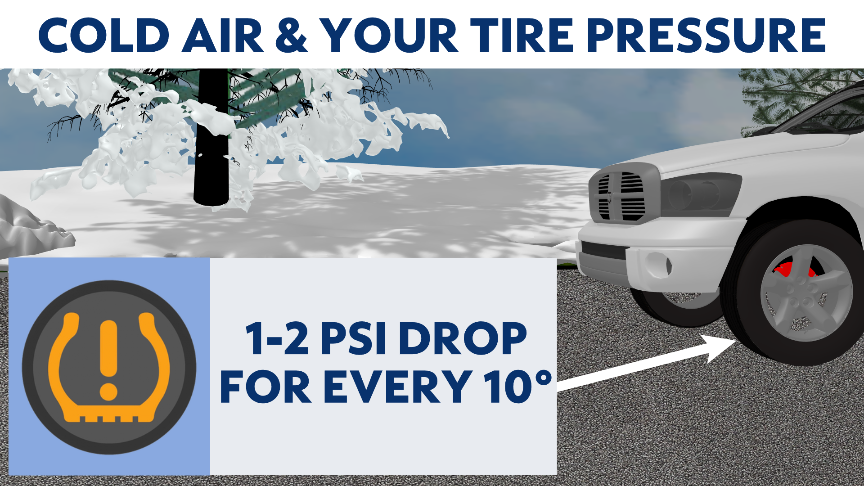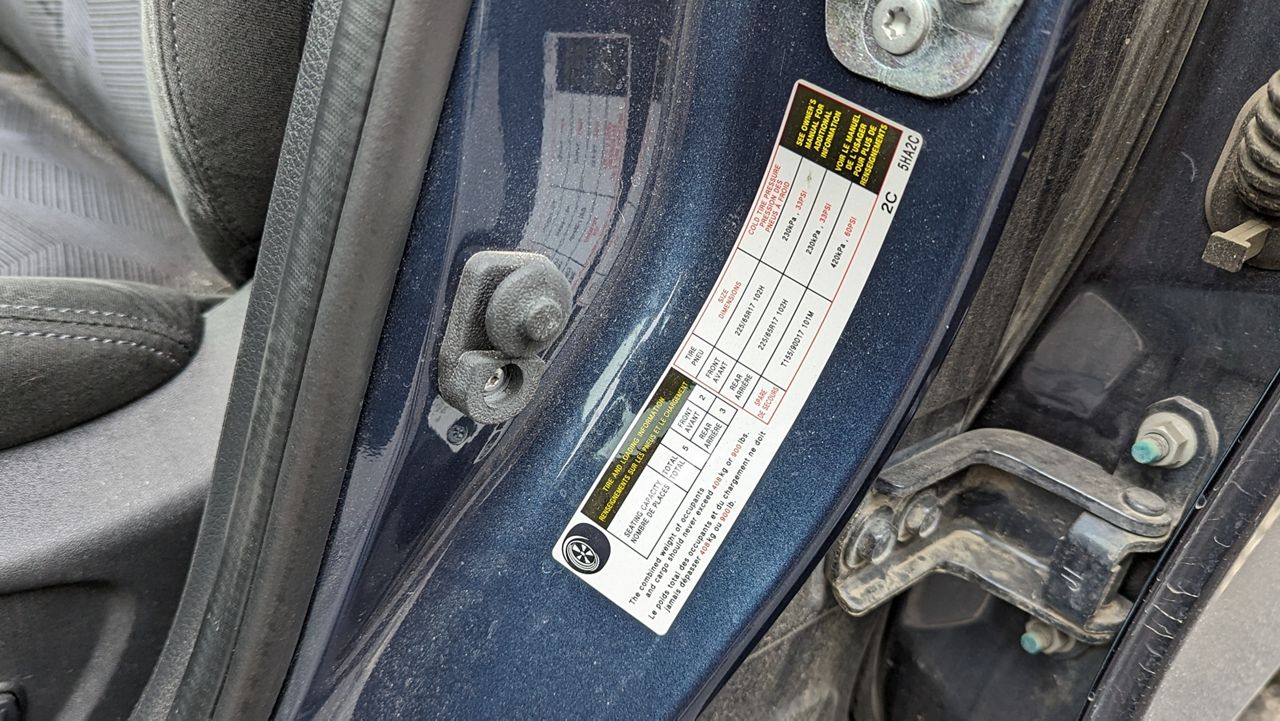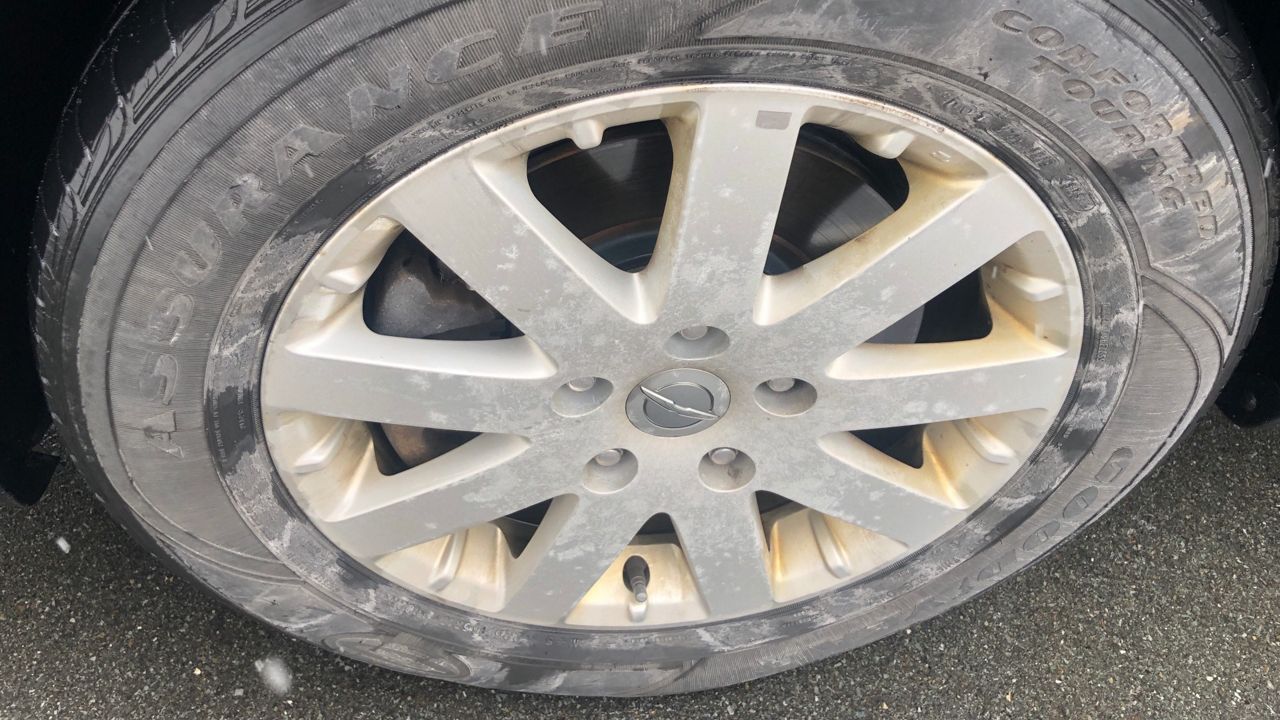As we move more into the colder months, it may be time to check the air pressure of your tires.
Imagine it is a cold morning; you rush outside to start your car. Shortly after getting it warmed up, you back out of the driveway, and you hear a noise: ding.
A funny light has appeared on your dashboard, something like this:

What is that?
It is your TMPS warning light, also known as the Tire Pressure Monitoring System. In short, it means your tires need air.
With the drop in temperatures, the air pressure of your tires will also begin to drop. In general, for every 10 degrees colder it gets, you will lose about one to two PSI (pounds per square inch) from your tires.

As the air cools, it contracts. Colder air also means fewer molecules move around. The air molecules will produce less pressure on the walls of the tires. Thus, you end up with tires that look flat.
For example, say you last had your tires aired up when it was 75 degrees outside. Now, today, it is 25 degrees. That is a 50-degree change, and it means your tires may have lost upwards of 10 PSI.
Now is the time to have your tire’s air pressure checked and, if needed, refilled. How much air do your tires need? Check on the tires themselves or the inside of the driver door.

Keeping your tires properly inflated can keep you safe on the road. Low tire pressure causes more of the rubber to hit the road. This leads to extra wear on your tires and can also lead to some loss of steering control.
What if the light turns off after driving for a while? You should still check your tires. Heat generates on the tire as you drive. That heat is then transferred to the air molecules inside of the tires, increasing the pressure (temporarily).
Some older model vehicles do not have TMPS sensors. If you notice your tires look a little flat, it is beyond time to have your air pressure checked.
It's not just air pressure to keep an eye on–your tires need other care in the winter, too.
Our team of meteorologists dives deep into the science of weather and breaks down timely weather data and information. To view more weather and climate stories, check out our weather blogs section.



